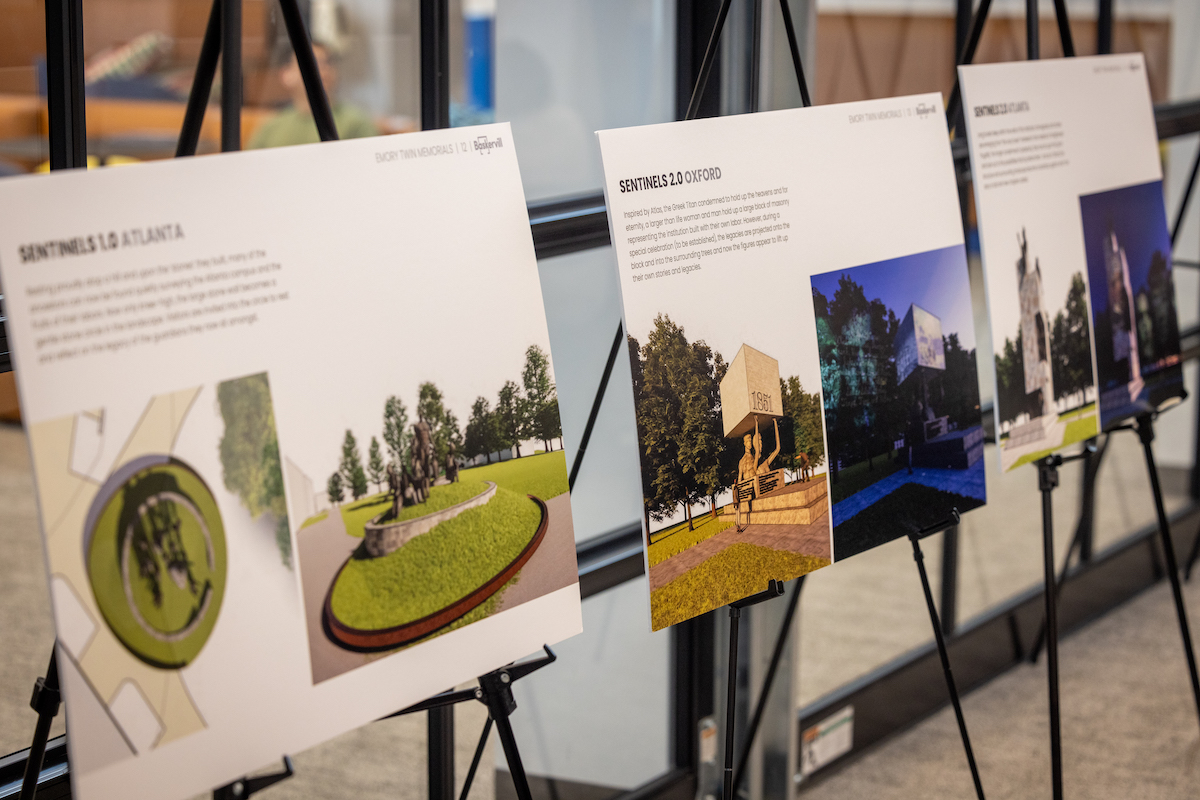As another significant phase begins for the creation of Twin Memorials on the Atlanta and Oxford campuses, it is worth retracing the steps taken thus far.
In June 2021, President Gregory L. Fenves accepted a recommendation of the Task Force on Untold Stories and Disenfranchised Populations to explore creating memorials that will honor “the enslaved individuals and their descendants who lived and worked on Emory’s original campus at Oxford College.” The paired memorials, he noted, should “articulate and interconnect the shared history of the Emory and Oxford campuses.”
The Twin Memorials project is but one example of the ways in which concerted work to acknowledge and reckon with Emory’s history began in earnest with the president’s arrival.
In August 2020, Fenves committed to “improving the Emory experience and living up to our values so that everyone feels a sense of belonging and purpose.” As he set in motion several committees, task forces and working groups, the president tapped into a community eager to do the hard work of learning and reflection to become a more inclusive community.
Leaning into Emory’s past
The Task Force on Untold Stories and Disenfranchised Populations began its work in fall 2020, charged with honoring the contributions not only of enslaved persons with ties to Emory but also the Indigenous peoples on whose land Emory’s campuses were built.
When its work concluded in April 2021, the task force issued an executive summary and recommendations that — in addition to honoring enslaved persons whose labor contributed to the construction of Emory College — included criteria for awarding Emory scholarships to descendants of those enslaved persons (see sidebar), ideas for honoring Indigenous peoples who previously lived on land now occupied by Emory and expanding curricular offerings focused on the legacies of slavery and Indigenous populations.
To carry out the recommendations to memorialize Indigenous peoples who previously lived on land now owned by Emory, including the development of “physical reminders and remembrance rituals on campus, such as a Muscogee (Creek) Language Path that highlights Muscogee language and knowledge,” Fenves charged the Indigenous Language Path Working Group, whose initiatives recently resulted in a Muscogee teach-in on the Atlanta campus.
The Emory community shapes a vision for the twin memorials
One of the first major steps for the Twin Memorials Working Group came when its original co-chairs — Douglas A. Hicks, former dean of Oxford College, and the Rev. Gregory C. Ellison II 99C, associate professor of pastoral care and counseling, Candler School of Theology — undertook a learning journey, visiting several campuses undertaking similar projects.
This past summer, Molly McGehee and Carol Henderson joined Ellison as co-chairs of the Twin Memorials Working Group. McGehee is associate professor of English and American studies at Oxford College, where she also serves as associate dean for faculty development and director of the Oxford Center for Teaching and Scholarship. Henderson is vice provost for diversity and inclusion, chief diversity officer and adviser to the president.

Community members had the chance to examine design concepts centered around the themes of Scars, Scattered Moments, Sentinels and Assemblage. Central to all the themes is making the memorials contemplative spaces for reflection as well as welcoming, interactive plazas.
The working group submitted its report to the president in November 2022, which included four themes that Baskervill developed for memorials at Emory — Scars, Scattered Moments, Sentinels and Assemblage — that came out of the collective vision.
A request for proposals now will be disseminated to identify a team consisting of an architect and artists to develop a design for the memorials. Their work will be shaped by the concepts in the report along with continued community input.
“This has been a community-led effort,” says Fenves. “We are working together to develop memorials that reflect the most painful chapters in our history while offering an opportunity for healing. I’m proud of the work of the members of the working group and all those in our community whose ideas and perspectives have made this important journey possible for Emory.”

